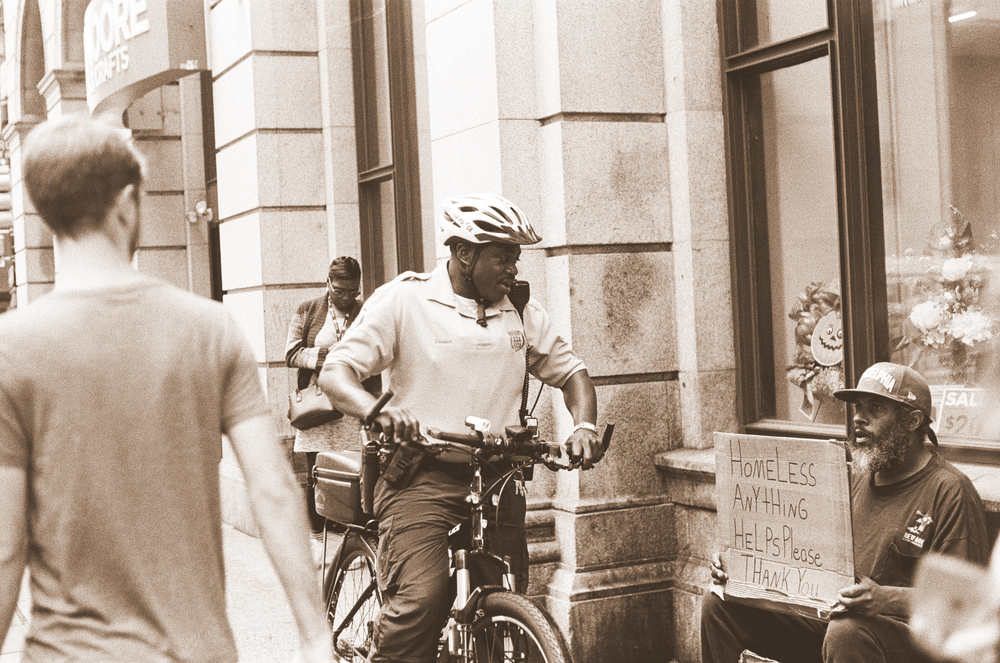Creating Empathy in the Workplace to Provide Better Services
A big thank you to Catholic Charities of Buffalo, New York for this guest post!

We at Catholic Charities Special Supplemental Nutrition Program for Women, Infants, and Children (WIC) Program believe that empathy can create positive change, giving WIC participants the most resources and best experiences possible to live healthier lifestyles with their families and community. Our term for this is called “Participant-Centered Nutrition Services.” With the family and their needs at the center of each interaction at WIC, we can better focus on the nutrition education and resources appropriate to suit them. With this in mind, we created the Shopping Experience Simulation.
The goals of the Shopping Experience Simulation initiative were to:
- Address the barriers encountered by WIC participants during the grocery store experience that prohibit them from using WIC checks to buy nutritious foods;
- Encourage empathy among the staff of nutritionists and nutrition assistants for our WIC families and the issues that they face when using WIC benefits;
- Increase attendance of WIC families at appointments so they may receive nutrition and health information and get referrals to other resources that are available for families in the community ; and
- Identify educational opportunities for WIC staff to improve the WIC shopping experience by providing better nutrition counseling before WIC participants go shopping.
The Shopping Experience Simulation (the Simulation) included three steps: planning, simulation, and debriefing. A team of three staff planned and coordinated all activities in the Simulation. This team met with grocery store management to plan the Simulation, created simulated WIC checks to represent all different kinds of WIC participants, and coordinated which staff would work together. In the Simulation, all WIC participant types were represented: pregnant women, breastfeeding postpartum women with infant, postpartum women formula feeding her infant, and families with toddlers and preschoolers. In the Simulation, staff in teams of two were assigned a WIC participant role, and had 30 minutes to shop with the simulated WIC checks. Immediately after the shopping experience WIC staff attended a debriefing session that included a survey, a group discussion, and a brainstorming session for takeaways.
Planning
In the planning phase, we contacted TOPS Supermarkets as the vendor partner for the Simulation. After phone conversations, we selected the local store and held a meeting with the company executive, store manager, and store management team to review the Simulation plan and establish expectations for all parties. TOPS Supermarket would supply two training checkouts and cashiers to simulate real physical check out of food items, enforcing all WIC policies concerning separating food items, signing and dating checks, and purchasing of approved items. Afterwards, store personnel would replace all simulation food items to proper place in store.
The Simulation was piloted by 13 staff from the Kenmore and North Buffalo WIC locations. Staff would be provided one month of WIC checks. Checks would represent a variety of WIC food packages, including breast feeding mother and baby, infant on specialized formula, participant-requested soy products, and a standard package for child and pregnant woman. Participating staff would have 30 minutes to purchase WIC approved foods as listed on checks, following WIC policies. Staff members were given WIC check folders and food sheets to follow and guide the experience. The staff members were not given the WIC pictorial food guide as an aid. The Store Manager was available for any questions or assistance.
Simulation
Even with all of this structure in place, reality set in. Shelves were bare where baby food should be. Aisles were crowded, and labels were difficult to find to make sure the item was correct. It took over 18 minutes for the pharmacist to unlock the baby formula case. The wait in the cashier’s line was embarrassingly long, as each item had to be checked to make sure it was as written on the check. Staff became frustrated, losing their checks in abandoned shopping carts. If children would have been added to the mix, as they are in reality, it would have been a truer simulation, and almost certainly more frustrating. To ensure an accurate reflection of the shopping experience, the WIC staff immediately completed a written debriefing questionnaire on feelings and experiences associated with the Simulation. Staff then had an opportunity to verbally share experiences and brainstorm ideas for making the shopping experience better, including how to counsel WIC participants to better prepare them for shopping and using WIC benefits.
Debriefing
The debriefing results were tallied and shared with the entire WIC Leadership Team, WIC staff, and the New York State WIC Learning Community. As a result of the Shopping Experience Simulation results, educational action steps were designed to administer this Simulation training to all 107 employees at all 21 sites across the 3 counties that we serve (the Erie, Niagara, and Chautauqua Counties in Western New York). A report with the debriefing data was then e-mailed to executives at TOPS Supermarket to share the impact the Shopping Experience Simulation would have on WIC activities. This partnership and feedback with TOPS Supermarket also generated ideas on how to make the general shopping experience better.
We took challenges in stride, and made adjustments for future Simulations. We noted that too many WIC staff participated at one time, which overwhelmed the small store and training cashiers. To lessen the impact on the store, fewer staff will be trained at one time in the future. Too many checks were given out , and it became too much to handle. In the future, one week of WIC checks will be given to each staff member.
What was learned was more valuable than the resources that went into the execution of the Simulation. This Simulation effectively used resources, as it cost virtually nothing to train the staff. The only cost associated with the Simulation was staff time. Feeling overwhelmed themselves allowed WIC staff to connect with WIC participants. Staff learned to be less judgmental, more supportive, and more open to the needs of WIC families. The WIC Shopping Experience Simulation illustrated how small but effective educational changes can provide better participant-centered nutrition services and make the work of WIC participants, WIC staff, and vendors easier through a more successful shopping experience. Empathy resulting from the experience will give WIC staff an increased capacity to respond to concerns of WIC participants and validate WIC participants’ experience and feelings while shopping with WIC checks.
Embedding lessons learned
As a result of the simulation, several changes have been made to all Catholic Charities WIC office procedures:
- All WIC staff will participate in the Shopping Experience Simulation within the next year and ongoing as more WIC staff are hired;
- All WIC support staff are providing follow-up calls to all new WIC participants, offering support and assistance in any aspect of the WIC process, including successfully using WIC benefits to purchase nutritious WIC foods;
- WIC Nutritionists will spend additional time reviewing the WIC Acceptable Food Cards, including highlighting foods preferred by WIC participants to better prepare them for their selections available when they go to the store;
- All staff will emphasize the importance of WIC check safety and importance of organization and planning in order to have a successful and stress-free shopping experience;
- The WIC Program will collaborate with Vendor Management Agency to act as liaison between the WIC Program and stores to organize simulations. This will help the planning team to accomplish a seamless process for orienting staff on the Shopping Experience Simulation; and
- To make the Simulation more realistic and to develop empathy for WIC participants with transportation issues, the Simulation in the future will include riding the bus or walking a short distance with food purchases.
The Shopping Experience Simulation accomplishes much with little investment. Catholic Charities WIC Program has shared the Shopping Experience Simulation with all other WIC Programs in New York State as an innovative practice. The original team that developed the Shopping Experience Simulation has presented the project on the state level in the WIC Learning Community and for a WIC Conference in Albany, New York. The Shopping Experience Simulation demonstrates a new way of thinking about WIC participants. Walking in their shoes through their experience creates empathy and enriched practices. This has been warmly received in the New York State WIC community. I encourage readers to ask yourself what experiences you can provide your staff to augment their understanding of your clients. Concentrate on your services. Simulating customer service experiences while following our steps of planning, simulation, and debriefing will help your staff gain client perspective. Gathering data from simulation experience will help frame action steps to make your business and services more client-friendly.

The views, information and opinions expressed herein are those of the author; they do not necessarily reflect those of the Council on Accreditation (COA). COA invites guest authors to contribute to the COA blog due to COA’s confidence in their knowledge on the subject matter and their expertise in their chosen field.

Grace McKenzie
Grace McKenzie holds a Master’s Degree in Education from Buffalo State College. For the past fifteen years, she has worked in Community Relations and Outreach for various nonprofit organizations. Currently, she works at Catholic Charities of Buffalo as the Outreach Supervisor for WIC. As a mom, she enjoys family time with her two girls, including exploring nature, tending the garden, visiting museums and family time at home.



